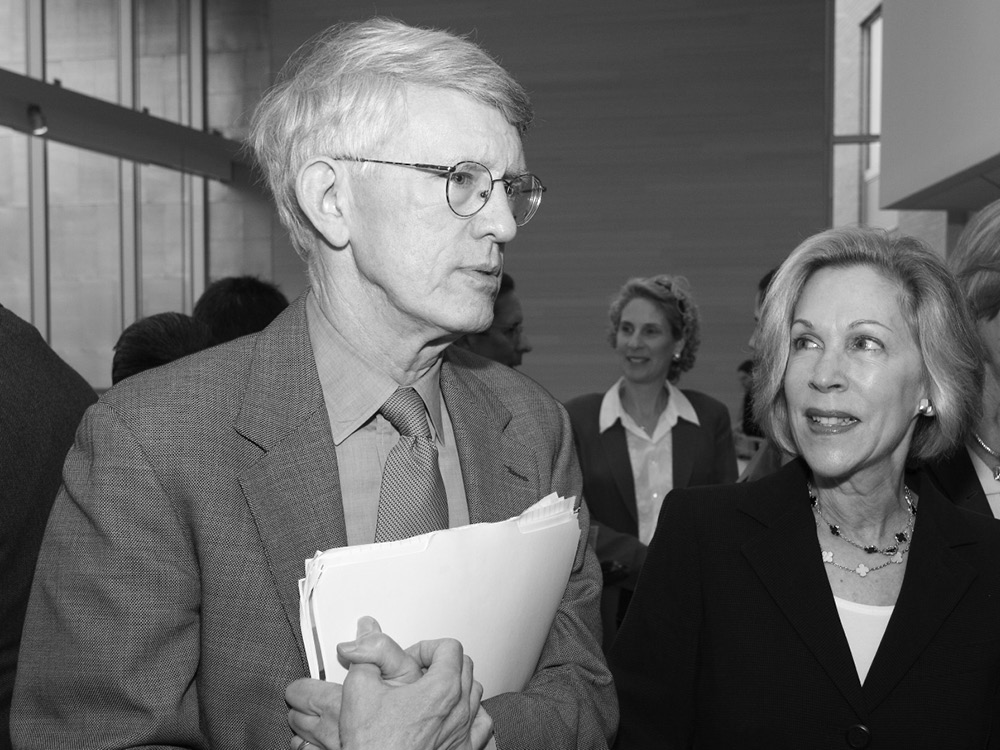
An outsider might look at the career of Thomas P. Glynn III, MSW’72, PhD’77, and call it nonlinear. Recently retired as the CEO of the Harvard Allston Land Company (HALC), he has also been executive director and CEO of the Massachusetts Port Authority (Massport); chief operating officer of Partners HealthCare (now Mass General Brigham); deputy secretary of labor under former Heller faculty member Robert Reich in the Clinton administration; senior vice president of finance and administration at Brown University; deputy commissioner of public welfare under Massachusetts Gov. Michael Dukakis and general manager of the Massachusetts Bay Transportation Authority (MBTA).
Glynn, however, is quite clear about the throughline of his career. “I am a manager and have been interested in solving significant public-administration challenges.”
Today’s Heller students see Glynn’s work at the school, whether they realize it or not. Few people have held as many roles as he: student, adjunct lecturer, assistant dean, Heller board chair and Brandeis University trustee. As a student, he helped create the master’s in management of human services (MMHS) program, predecessor to today’s Social Impact MBA. As chair of the board of advisors, he worked with former Dean Jack Shonkoff and late Vice Chair Ronny Zinner to find funding to supplement the generosity of the Schneider and Zinner families for construction of the Irving Schneider and Family Building and the Zinner Forum.
“The Massport Model” is one of many lasting legacies from Glynn’s six-year tenure at Massport. Glynn ensured local community participation in the development of real estate in East Boston and the Seaport District. He also created a decision-making structure for evaluating the Seaport’s Omni Hotel project development proposals, where 25 points out of 100 were awarded based on the diversity of all aspects, including investment. The success of the “Massport Model” has led to its adoption in other public-sponsored projects.
After Massport, Glynn was recruited to become CEO of HALC, where he helped launch the development of an enterprise research campus in Allston, Massachusetts. “How we approached developer selection for the Omni Hotel informed the selection process for the enterprise research campus. It’s a great example of a university being a leader on the issue of diversity and inclusion,” he says.
Glynn retired from HALC in the summer of 2021, and in addition to nonprofit board service with the MGH Institute of Health Professions and the Pine Street Inn, he is very happily back in the classroom, bringing his values and wealth of experience to public policy students at the Harvard Kennedy School.
